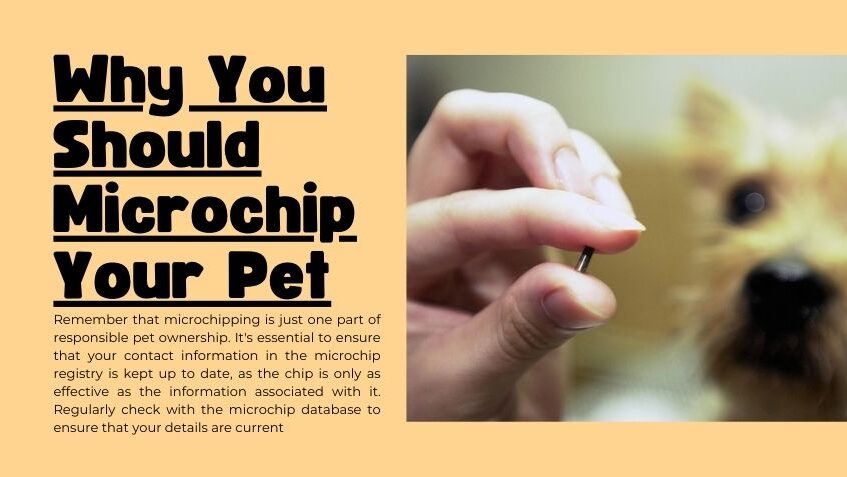WHY SHOULD YOY MICROCHIP YOUR PET
History of Check the Chip Day
This was originally just an annual check-up on the chip and how the animal is reacting to it. Many veterinarians and other animal health individuals use this day as a great reason to do a basic check-up. But the important thing to take away from this reminder is that the chip is there, and can help you find your pet if lost.
The chips that are the namesake of this pet important day have become more and more commonplace as social media, and more importantly, electronics in general, become more widespread. The ability to have a smartphone or computer that can check on your pet’s location at any given time is something that not many would have thought about back when Vanilla Ice was still singing “Ice, Ice, Baby” on stage.
But the biggest component that people should look at isn’t the technology or the capabilities, but the safety and security it can bring you for your pet.
Microchipping offers several important benefits for pets and their owners
Here are some of the key advantages:
- Permanent Identification: Unlike collars and tags that can be lost or removed, a microchip provides a permanent form of identification for your pet. It’s implanted under the skin and can’t be easily tampered with or lost.
- Lost Pet Recovery: If your pet goes missing, a microchip greatly increases the chances of them being reunited with you. Animal shelters, veterinary clinics, and animal control agencies have microchip scanners that can read the chip’s unique identification number. This number is linked to your contact information in a database, allowing them to contact you when your lost pet is found.
- Reliable Ownership Proof: Microchips are particularly useful in situations where ownership of a pet is disputed. The unique ID tied to your contact information serves as reliable proof of ownership.
- Travel and International Identification: If you travel with your pet, especially across borders, microchipping is often a requirement. Many countries have specific regulations that require pets to be microchipped for identification and health reasons.
- Medical History and Special Needs: Some microchipping databases allow you to store medical information and special needs details about your pet. This can be especially helpful if your pet has specific health conditions or requires certain medications.
- No Discomfort to Pets: Microchips are small and designed to be as painless as possible for your pet. The procedure is akin to a vaccination and is typically done during a regular veterinary visit.
- Deters Theft: Microchips can deter thieves, as they know that a microchipped pet can be traced back to its owner more easily. Stolen pets with microchips are often scanned when brought to shelters or veterinary clinics, increasing the likelihood of recovery.
- Cost-Effective: Microchipping is a relatively low-cost procedure compared to the potential emotional and financial toll of a lost pet.
- Quick and Efficient Identification: In emergency situations, such as natural disasters, microchips can help identify pets quickly, ensuring their safety and well-being.
- Community Responsibility: By microchipping your pet, you contribute to responsible pet ownership and help reduce the number of stray animals in shelters.
Remember that microchipping is just one part of responsible pet ownership. It’s essential to ensure that your contact information in the microchip registry is kept up to date, as the chip is only as effective as the information associated with it. Regularly check with the microchip database to ensure that your details are current.
You may also visit – https://www.facebook.com/angkopparasahayop





